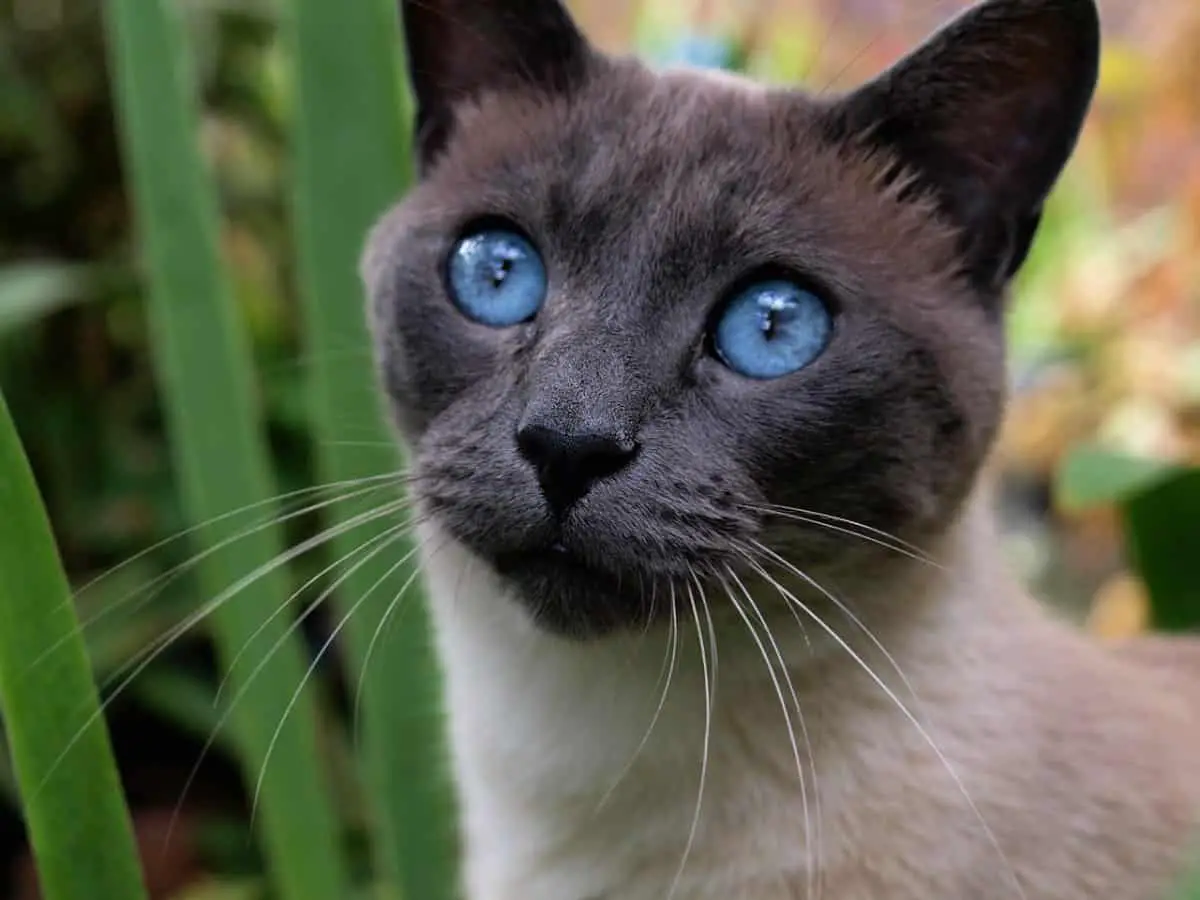Introduction
Any cat lover can say how satisfied they are with the relationship they have built with their pets over the years. It can be rewarding and satisfying to have a kitten playing around the house. However, many owners have been facing frustrations and confusion when their cats start spraying. There can be a number of reasons that can create this sort of behavior in your cat. Social and physical factors, as well as personality traits, can come into the equation in this case. To come up with an efficient strategy on How to stop cats from spraying
How to stop cats from spraying? Why do cats spray?

To understand how we can stop our cats from spraying, it is essential to understand the reasons that cause our pets to have this behavior. We will have a look and instincts, medical issues, psychological conditions, and training factors that play a crucial role in your cat’s conduct. However, don’t be confused between spraying and urinating.
The first happens when the cat is sitting down and voluntarily. It is also due to physiological reasons. Spraying cats stand on their feet with their tail upright during the act.
Natural Instincts
Animal Instincts
The animal instincts of cats are the first and most obvious factor that could lead your pet to have this behavior. Spraying is another way for your cat to mark its territory. Sometimes you might have noticed him or her rubbing against furniture and people. This is the normal way for cats to establish an area that belongs to them. In cats and felines, this behavior is extremely common, and often owners overlook it as it can happen frequently.
However, they could be using another way of marking their territory. Among the most frustrating and used methods is through their urine. They often do this while standing with their tails upright.
To leave their scent
This is a way for cats to remember where they have been and if a territory belongs to another cat. Rubbing, scratching, marking are all ways for your cat to leave a scent on items due to the glands on their feet or the smell of their hair. spraying is seen as the most effective way as urine as a unique scent that differs from cat to cat.
[su_box title=”How to stop cats spraying”]If you are in a hurry and would rather skip this informative article then all you have to do is Click Here and have a look at the course for How to stop cats from spraying? This course has been used thousands of times and DOES work. You can gain immediate access and all for a price of less than $30.00.Just go and have a look now.[/su_box]
Illness. medical conditions
Similarly to humans, cats can suffer from urinary problems such as infections or blockages. This can lead to excessive spraying, which the pet is not able to control. UTI or urinary tract infections are more common in female pets, but it can not be excluded that a male cat is suffering from this condition just as well.
While these conditions are not considered serious and they can be solved with periodic treatments, you should be visiting your vet as soon as you realize that there is something wrong with your cat. Don’t forget that the earlier you can find a solution to the condition that is affecting your pet, the earlier you will see a reduction in spraying behavior.
Moreover, be aware that cats can also contract more serious diseases that could be life-threatening if not treated properly and promptly. Illnesses such as diabetes or kidney problems can develop slowly over time and represent one big threat to the health and wellbeing of your cat.
If you notice sudden spraying or abnormal behavior in your pet, it is recommended to visit your veterinary clinic instantly to ensure that your cat is not suffering from a serious disease.
Old Age
Even if you have never experienced behavioral problems in your cat when getting older, most pets are likely to suffer from incontinence and involuntary spraying. While this is not necessarily due to negative behavior or poor training, your cat might have no or little control over his or her bladder.
Moreover, while spraying is completely different behavior than urinating, your old cat might be reluctant to go outside to relieve himself. This often happens during months with high or very low temperatures. In poor weather conditions such as raining or snowing, you will notice your old cat spraying more often.
Reaching sexual maturity
Spraying can also be used by cats while approaching sexual maturity to indicate their readiness as well as marking their territory. If your cat is un-neutered, this behavior can continue for a few years during similar months.
This is extremely common in male cats, which use their urine to communicate their sexual and reproductive status. Some studies suggest that spraying can be facilitated by the presence of hormones in cats.
However, by neutering your cat before puberty you will be able to manage and resolve this problem that could present itself in the future. By taking away their reproductive power, male cats will be less likely to spray.
How to stop cats from spraying? Psychological reasons
Fear
Fear can play an important role in our cats’ behavior. While every owner dedicates time and energy to make sure their pets feel safe and comfortable, there are situations that can not be avoided. Especially cats that have spent their whole life indoors, they can be easily feel threatened or scared by external and outdoor elements.
In this case, the cat has no power of controlling the spraying, and it will happen unconsciously. If you have been living with your cat for a prolonged period of time, you should be aware of its personality traits and weaknesses.
If you have knowledge of what triggers a fear reaction in your cat, you will be able to eliminate the possibility of spraying inadvertently. However, if something happens when your cat is outdoors or in unfamiliar situations, don’t blame him or her for spraying as it might have just been caused by fear.
Be aware that encounters with other animals, especially if more aggressive or big in size, might trigger a similar reaction in your cat.

Stress
Cats can suffer from stress caused by different factors. Similarly to humans, a sudden change in the environment can make them feel anxious and overwhelmed. This can lead to involuntary spraying until the cat has become familiar with the new environment.
This can happen in adopted kittens or adult cats that have been moved from their previous house to yours. In this case, the easy solution can be to let them adapt to the new environment and leave time for them to explore new areas without pressure.
Be aware that even moving furniture within an apartment that they have already been living in for a prolonged period of time can cause some degree of stress. Be mindful of moving pieces of furniture within your house slowly and preferably one piece at a time.
Changes within the household or family are also among the most common causes of stress and spraying. If you have just adopted another pet or a baby is born, the cat can see this as a threat to their territory. In this case, they will be spraying due to both stress and trying to remark a territory that is seen as theirs.
Presence of strangers or unfamiliar smells
Once your just adopted cat is used to the new environment, he will feel comfortable and safe in it. Any intrusion of unfamiliar people can be seen as a threat. This can cause both fear and stress in your kitten that sees the house he has been known for a while changing suddenly.
If you are planning a party and inviting people that your cat has never met before, it could be a good idea to confine him or her in a safe area for the duration of the event. This will help you avoid uncomfortable or frustrating situations, especially if your cat is already prone to spraying.
Similarly, this situation can happen in the presence of unfamiliar animals, as they will have a scent your cat is not used to. In order to fully understand this, any owner should be aware of the importance of scents, smelling, and sniffing for cats. They can build entire relationships just by getting to know a smell.
Training and equipment issues
The wrong placement of a litter box
While cats are not famous for being easily trainable, a solid potty routine can help them realize where it is right to urinate. Letting your cat outside often could have been solving this issue for years. This might have caused you to overlook the importance of the placement of the litter box.
As your cat gets older, he will not appreciate having to go outside in bad weather conditions, during rainstorms, or in very hot days, so he will spray and relieve himself anywhere he can.
Through a proper litter box training, you might be able to help your cat decide where he should be relieving himself and where he should not. However, if the spraying started happening after you have either moved or introduced a litter box, this could mean that your cat does not like its placement and does not feel comfortable using it.
In this case, try to move the box in an area that is more hidden and reserved. Just by giving your cat some privacy, you might be able to see immediate results.

How to stop cats from spraying? The wrong type of kitty litter
Especially for first-time owners, kitty litter might seem similar. With experience, you will learn that the litter is made with chemicals and substances to reduce the smell. Since cats possess a better smelling sense that we do, they will be able to notice if you have changed or replaced their kitty litter.
If your cat does not like the substance from which the litter is made, this could lead to your cat deciding not to use the box at all. This can lead to excessive spraying and urinating around the house or apartment. In this case, it could be an easy solution to swap the current box for a sandbox or a litter tray that is made out of natural or organic material.
Neutral litter tray
While cats are extremely difficult to train, they are easy to manage as they follow their instincts and habits. If you have washed their litter tray with strong chemicals that have erased the scent they left on it, they might not be able to realize that that is the right place to relieve themselves.
In this case, it is common that, being confused, your cat sprays more often than he usually would. While the tray can not be unwashed, the spraying should stop after one or two times that your cat has used the same spot to urinate. By leaving his scent on the litter box, he will now know where to pee.
Dirty litter tray
Cats are incredibly intelligent, and they meow primarily to communicate with their human friends. They love speaking to their owners, but they also communicate with us in other ways. If you have noticed your cat spraying for often or having an anxious behavior, it is recommended to investigate what could have caused this distress.
Moreover, this conduct could indicate that they are trying to communicate with you and ask you for something.
The first thing any owner should do is check their litter boxes. If your cat was never used to spraying and this behavior has just started, maybe your cat does not feel comfortable urinating in his box. This might be due to the box being dirty.
While every owner dedicates much time to looking after and cleaning their pets, it is easy to overlook these matters when we are busy. However, just by listening to what your cat is trying to tell you, you might be able to solve this issue easily.
How to stop cats from spraying?
Now that you are aware of all the reasons that could cause your cat to spray and you know the difference between normal urinating and abnormal spraying, let’s have a look at how to solve this issue. Spraying can be a frustrating attitude, especially if you are in public or in the presence of friends. Therefore, it is important to address the problem immediately, and don’t let this become a habit!
Observe your cat’s behavior and find the cause of the problem
To find out if your cat spraying is due to a changing environment or external cause, try and modify your house’s habitat. Make sure that all of your cat’s toys, litter boxes, and areas are clean and tidy. Afterward, try to confine your cat in a safe and comfortable environment he is already used to. If the spraying stops, the behavior was most likely caused by stress due to a changing environment.
If you have introduced a new pet or baby in your household, try and isolate your cat. Check whether his behavior improves. If you have more than one cat and you know that one of them is spraying, but you don’t know which one, observe them for a long period of time until you are clear on what the issue is.
If none of these tests yield any positive results, you should be considering bringing your cat to your vet as the spraying might be due to a medical condition.
Taking the cat to a professional
Even if you have been a pet owner for long, every cat is different and might require different training techniques. While most of your pet has been free of issues if you have a spraying cat, you will have to inform yourself on how to solve this problem.
If home remedies are not working, you should consider taking your cat to a professional trainer or cat behaviorist that can help you identify the causes behind him spraying. A professional will be able to suggest the best training techniques for your specific situation and be knowledgeable about other strategies.
Among the most effective ones, some cat owner has successfully tried temporary separation and retraining. While it can be tough to see your cat confined, you could also try limiting outside views and trips and reduce the stimulation from external agents.
Alternatively, you and the professional trainer you have picked could decide that the right path is to keep your cat indoors for a determined period of time.
Increase your cat’s facilities
As we have seen above, the lack or poor condition of adequate facilities for your cat can lead to excessive spraying. In this case, try to increase the number and quality of the litter boxes available to your cat around the house. Make sure your cat likes the material the litter box is made out of, and the boxes are always maintained clean.
Position the litter trays in reserved areas where your cat can find some privacy. Cats are reserved and independent pets that might prefer relieving themselves privately and not in the middle of the living room.
While any owner’s temptation is to keep their cats where they can see them and controlled, you should leave your pet some privacy. This might be a quick solution to stop the spraying problem immediately.
Don’t forget that your cat will be reluctant to use new litter boxes as they don’t have his scent on them. Allow some time for your cat to get used to the new situation and move some of his litter from and old to a new box. This can keep the scent on the new tray, but your cat will have new and improved facilities to use.
Stimulate your cat
As we have mentioned, cats are incredibly intelligent and smart, and, in most cases, they need to be stimulated and kept active continuously. Bring toys for your cat into your household and spend some time playing with your cat on a daily basis.
This can help your cat relieve some of the stress and pressure deriving from the external environment. Even if you have decided to confine your cat indoors, for the time being, keep him active throughout the day. This can not only help to eliminate the frustrating spraying issue but can make your cat happier and less anxious. You will be ready to let him back outdoors in no time!
Provide a stable environment
Many cat owners have reported having noticed a spraying issue and poor behavior after moving home or transferring a kitten from a previous to a new habitat. The sudden differences can be extremely damaging for the mental wellbeing of your cat, which will react in different ways.
Try to maintain a stable environment throughout, and import changes slowly and steadily.
Use positive reinforcement
Cats are quite hard to train but very intelligent. They are also incredibly loving pets. It is important to understand that most of the times, they are not spraying to create discomfort, but because they feel scared or threatened. Using negative reinforcement can damage the relationship you have with your cat and encourage spraying behavior. Ultimately, punishing your cat will only increase his stress levels.
Oppositely, it is recommended that any owners use positive reinforcement throughout the training. This can increase the level of trust the cat has in you and create a happy environment for him to be comfortable in.

How to stop cats from spraying? Natural remedies
Cats don’t respond well to chemicals and other agents, but natural remedies can be an easy and immediate solution to the spraying problem. Using essential oils can help soothe and calm your cat down in order for him to avoid nervous spraying.
Conclusion
Cats are among the most rewarding and loving pets, but they might be suffering from physical or mental issues that we are not aware of. In this case, observing and taking care of our pets can be an easy solution to spraying behavior. Remedies such as essential oils, reaching out for professional help, and creating a comfortable den for our cat is essential.
Are you a cat owner? Have you been experiencing problems with your cat spraying? How did you solve the issue? Let us know by leaving a comment below.
[su_box title=”Affiliate Disclosure”]This website is supported by its readers. Please assume that all links are affiliate links. If you make a purchase from one of the links we will make a commission from Amazon. Thank you.[/su_box]





